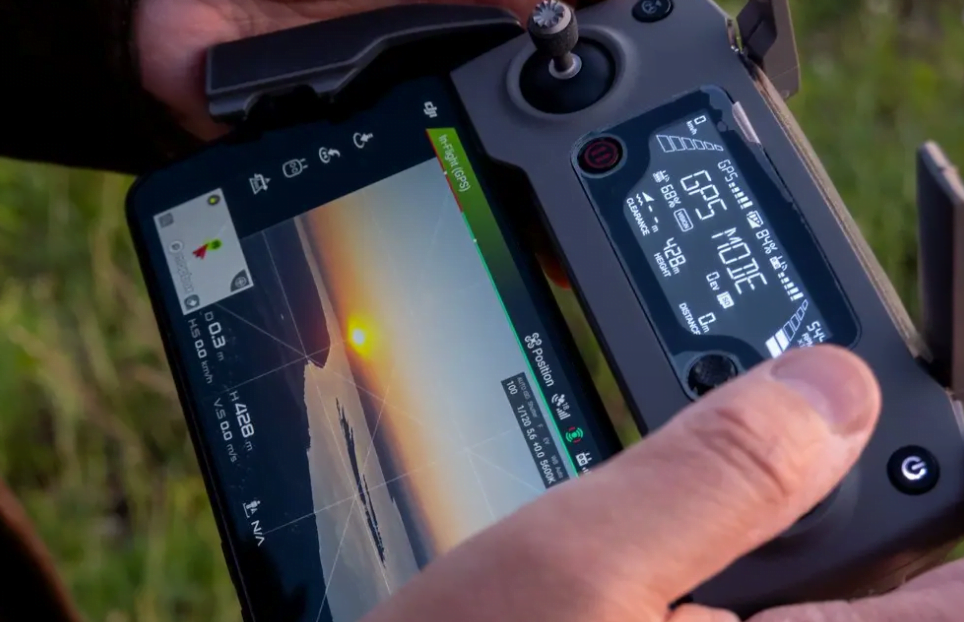Drones have become increasingly popular over the past few years, with applications ranging from aerial photography and surveillance to delivery and search and rescue operations. One of the key components that enable drones to perform these tasks accurately and effectively is the Global Positioning System (GPS). In this article, we will explore how GPS works in drones, the benefits it offers, and some of the challenges associated with using GPS in drone operations.
WHAT IS GPS?
GPS is a network of satellites in orbit around the Earth that transmit signals to GPS receivers on the ground. The receivers use these signals to determine their exact location and time. GPS was initially developed for military use, but it has since been made available for civilian use as well. Today, GPS is widely used in various applications, including navigation, surveying, and mapping.
HOW DOES GPS WORK IN DRONES?
GPS works in drones in the same way it works in other GPS-enabled devices. A GPS receiver in the drone receives signals from GPS satellites and uses the information to calculate the drone’s location, altitude, and speed. The drone’s flight controller then uses this information to navigate the drone to a particular location or maintain its position in the air.
GPS MODELS IN DRONES:
| GPS MODEL | WEIGHT | DIMENSIONS | UPDATE RATE | ACCURACY | CHANNELS | POWER CONSUMPTION |
|---|---|---|---|---|---|---|
| Ublox NEO-M8N | 12g | 22 x 30 x 2.5 mm | 10 Hz | 2.5 m CEP | 72 | 25 mA |
| DJI Phantom 4 Pro | 11.9g | N/A | 5 Hz | 1 m CEP (with RTK module) | N/A | N/A |
| Trimble BD990 | 185g | 196 x 158 x 71 mm | 20 Hz | 1 cm + 1 ppm | 672 | 3.3 W |
| NovAtel OEM615 | 29g | 71 x 46 x 11 mm | 10 Hz | 1 cm + 1 ppm | 372 | 2.8 W |
| Garmin GPSMAP 64s | 260g | 6.1 x 16 x 3.6 cm | 1 Hz | 2.5 m CEP | 12 | 2 AA batteries |
BENEFITS OF GPS IN DRONES
There are several benefits of using GPS in drones:
PRECISION NAVIGATION
GPS enables drones to navigate precisely and accurately, which is crucial for tasks such as aerial mapping and surveying. With GPS, drones can follow pre-programmed flight paths, maintain a specific altitude, and avoid obstacles.
AUTONOMOUS FLIGHT
GPS also enables drones to fly autonomously, without the need for human intervention. This is particularly useful for tasks such as search and rescue operations, where the drone can be programmed to search a specific area without direct human control.
IMPROVED SAFETY
GPS can also improve the safety of drone operations by providing real-time information about the drone’s location and altitude. This information can be used to avoid collisions with other drones or obstacles in the airspace.
CHALLENGES OF GPS IN DRONES
While GPS offers numerous benefits for drone operations, there are also some challenges associated with its use:
GPS SIGNAL INTERFERENCE
GPS signals can be affected by various factors, such as atmospheric conditions, obstructions, and interference from other electronic devices. This can lead to inaccurate positioning and navigation of the drone.
BATTERY LIFE
GPS receivers consume a significant amount of power, which can reduce the drone’s battery life. This can be particularly problematic for drones that need to fly for extended periods or cover long distances.
GPS JAMMING AND SPOOFING
GPS signals can be jammed or spoofed by malicious actors, which can cause the drone to lose its GPS lock and fly off course. This is a growing concern, particularly in areas where drones are used for critical operations.
CONCLUSION
GPS is a critical component of modern drone operations, enabling drones to navigate precisely and autonomously. While there are challenges associated with using GPS in drones, such as signal interference and battery life, the benefits it offers far outweigh the drawbacks. As the use of drones continues to grow, GPS will play an increasingly important role in enabling safe and efficient drone operations.
FAQS
- How many GPS satellites are there?
- There are currently 24 operational GPS satellites in orbit around the Earth.
- Can GPS work indoors?
- GPS signals are typically weak indoors, making it difficult for GPS receivers to receive a signal. However, some drones use alternative positioning systems, such as optical flow sensors, for indoor navigation.
- How accurate is GPS in drones?
- GPS can provide location accuracy of within a few meters in ideal conditions. However, various factors, such as signal interference and obstructions, can affect the accuracy of GPS in drones.
- Can drones fly without GPS?
- Yes, drones can fly without GPS, but they would need to rely on other positioning systems, such as visual and inertial sensors, which may not be as accurate as GPS.
- Can GPS be hacked?
- GPS signals can be jammed or spoofed by malicious actors, which can cause the drone to lose its GPS lock and fly off course. However, there are also measures that can be taken to prevent GPS hacking, such as using encrypted signals and frequency hopping.

